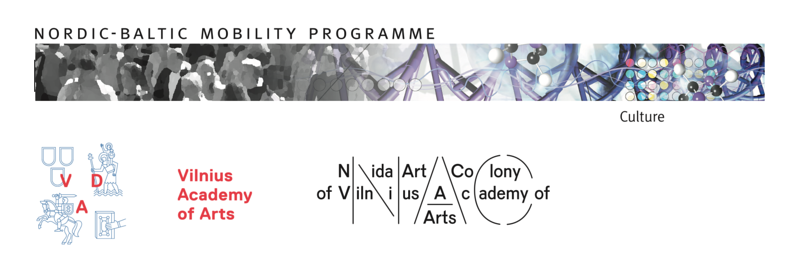Application deadline: January 9, 2022, 12am
E. A. Jonušo str. 3
LT-93127 Nida
Lithuania
NAC is open for applications for three international residency programmes in 2022 and 2023: Neringa Forest Architecture Residency, Weavers’ Residency and the regular Individual Residency programme.
Neringa Forest Architecture Residency and Weavers’ Residency
The Neringa Forest Architecture (NFA) research and residency programme focuses on the features of both the human-made and natural forest: its ecological rhythms, organic and industrial material cycles, timber-based material development, socio-political discourses, history, forestry and policy-making; art, design and architecture. For this programme NAC seeks applications from a broad range of practitioners working on the topic of the forest including architects, designers, carpenters and artists, researchers in the fields of humanities and science interested in cross-disciplinary work and exchange. NFA Residency: further information and application form.
For the Weaver’s Residency we accept applications from practitioners conceptually and theoretically interested in and / or technically equipped and experienced in working with analogue weaving, embroidery, knitting and felting techniques. We are interested in connecting the residency to the Neringa Forest Architecture programme, as well as conducting research into the political, economical, gender and historical discourses crucial to forming these techniques. Weavers’ Residency: further information and application form.
Funded by Nordic Culture Fund, applications to these two residency programmes are open to participants from the Nordic European region: Åland Islands, Denmark, Estonia, Faroe Islands, Finland, Greenland, Iceland, Latvia, Norway, and Sweden. Each selected resident / collective receives a monthly grant of 900Eur and additional travel costs.
Individual Residency at NAC
The goal of the individual residency programme is to provide time and space for residents to focus, and through exchange, gain insight, broaden, and diversify their outlook. The stay in Nida is self-funded and open to participants from around the world. Participants are required to cover accommodation costs of 400Eur/month.
NAC regularly works with visual artists and researchers who focus on history, ecology and politics, social sciences, visual culture and interdisciplinarity. The programme is also open to designers, architects, and curators, as well as practitioners working with performing arts, sound, material research/craft, and film. In addition, proposals for a residency by professionals from other fields are always welcome. The residency does not offer or facilitate exhibitions or studio visits on a regular basis, but participants are welcome to propose formats and activities beneficial for their work acknowledging the specific context of NAC. Individual Residency: further information and application form.
NAC is a subdivision of Vilnius Academy of Arts located in Nida, Lithuania. In addition to the international artist-in-residency programme, NAC organises art and research projects, exhibitions and hosts students’ seminars. NAC is situated within the particular and distinct landscape of the Curonian Spit, a 98km-long sand dune shared by Lithuania and Russia, overgrown with forests, separating the Curonian Lagoon from the Baltic Sea. It is a UNESCO World Heritage Site where forests planted over the span of 200 years form an environment dedicated to managing natural eolian processes.
NAC hosts up to five residents at a time. Each participant of the programme lives/works in a 65m2 studio equipped with basic kitchen, bathroom, bedroom, and workspace facilities. Residents have full access to common spaces such as the reading room and workshops with weaving looms, ceramic kiln, laser cutting, basic wood and metalworking tools, basic photo, video and sound equipment, silkscreen, and a hand printing press. In addition, participants are invited to work with naturally seasoned, Neringa-sourced, timber logged over the past two winters and stored on-site at NAC.







